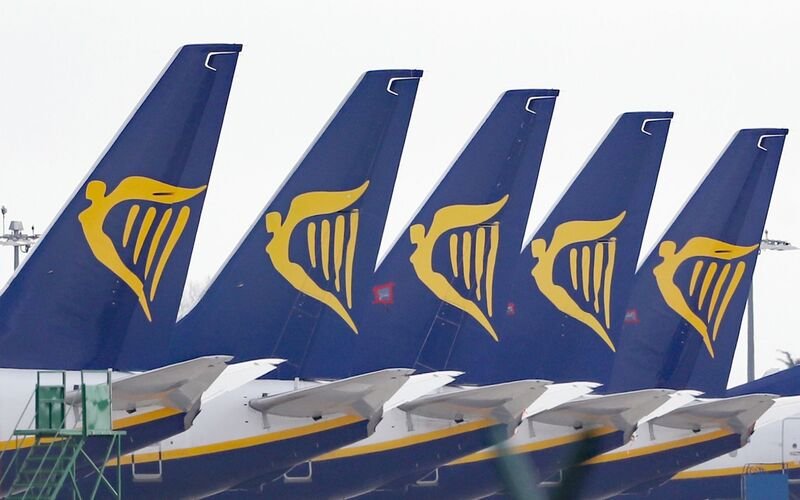Ryanair (RYA.I) announced on Thursday that it will cut 17 flights from its winter schedule at Dublin airport and move all 19 of its new Boeing 737 MAX planes to other European airports that offer incentives to fly quieter and lower CO2 emission aircraft. It came after Ryanair announced it would remove 17 routes from its winter schedule at Dublin airport.
The Irish airline, which is the largest in Europe in terms of passenger numbers, cited higher passenger prices, what it characterized as ongoing capital mismanagement by the Dublin Airport Authority (DAA), and the failure to implement a “meaningful” environmental incentive scheme as the reasons for its decision to cease operations.
Eddie Wilson, the head of Ryanair DAC, the largest airline in the company, addressed a news conference and stated, “The simple message is if you want to attract traffic, you’ve got to put in incentives and they go the opposite way (in Dublin),”
Wilson stated that Ryanair intended to relocate some of their newly acquired aircraft to airports in Spain and Italy and the Luton airport in the United Kingdom.
One of the most important aspects of the decision that Ryanair made was to place a strong emphasis on profitability. The airline company has concluded that flights departing from Dublin may not be producing the appropriate revenue level to improve both the efficiency of its operations and the company’s profitability by repositioning its planes on more lucrative routes.
The aviation sector is continuously changing, driven by various causes, including the shifting preferences of passengers and the conditions of the economy. This decision by Ryanair demonstrates the company’s capacity to quickly adjust to changes in market dynamics. The airline has positioned itself to succeed in the rapidly shifting environment of the aviation industry by adjusting its route network.
Because it is one of the key gates into Ireland, Dublin Airport is incredibly important to the overall connectivity of the country. The alterations to Ryanair’s flight paths will unquestionably have a discernible influence on the operations of the airport as well as the travel experience of its passengers.
There is a possibility that passengers who routinely take the routes that Ryanair’s decision will impact will have their travel plans disrupted. It is necessary for travelers to keep themselves apprised of these alterations and to investigate available alternatives for their journeys.
As a result of Ryanair’s reduced presence on some routes, other airlines will have the opportunity to step in and fill the hole left behind. There is a possibility that rival airlines will grasp this opportunity to extend their operations at Dublin Airport, which might increase competition and expand the number of travel alternatives available to consumers.
The strategic route adjustment made by Ryanair is not an isolated incident but rather a reflection of larger developments in the aviation sector as a whole.
Sustainability and reduced impact on the environment are becoming increasingly important to airlines around the world. Ryanair’s plan to optimize its route network may align with its objective of lower carbon emissions by flying more fuel-efficient flights.
The pandemic caused by COVID-19 has had a significant impact on the airline sector. As the post-pandemic era continues to see changes in travel habits, airlines such as Ryanair are making strategic decisions to maintain their flexibility and adaptability in the face of unpredictability.
In conclusion, the strategic understanding of Ryanair is demonstrated by the airline’s choice to reduce the number of routes it flies out of Dublin Airport and reallocate its aircraft. Although this change could potentially cause inconveniences for certain passengers in the short term, it is part of a larger goal to improve profitability and adapt to the rapidly shifting landscape of the airline industry.
Passengers and industry watchers must be educated about these developments and their ramifications as the industry evolves. This is true for both passengers and industry observers. Because of its dedication to adaptability and financial success, Ryanair is in a strong position for the future and is recognized as a significant participant in the aviation industry.


